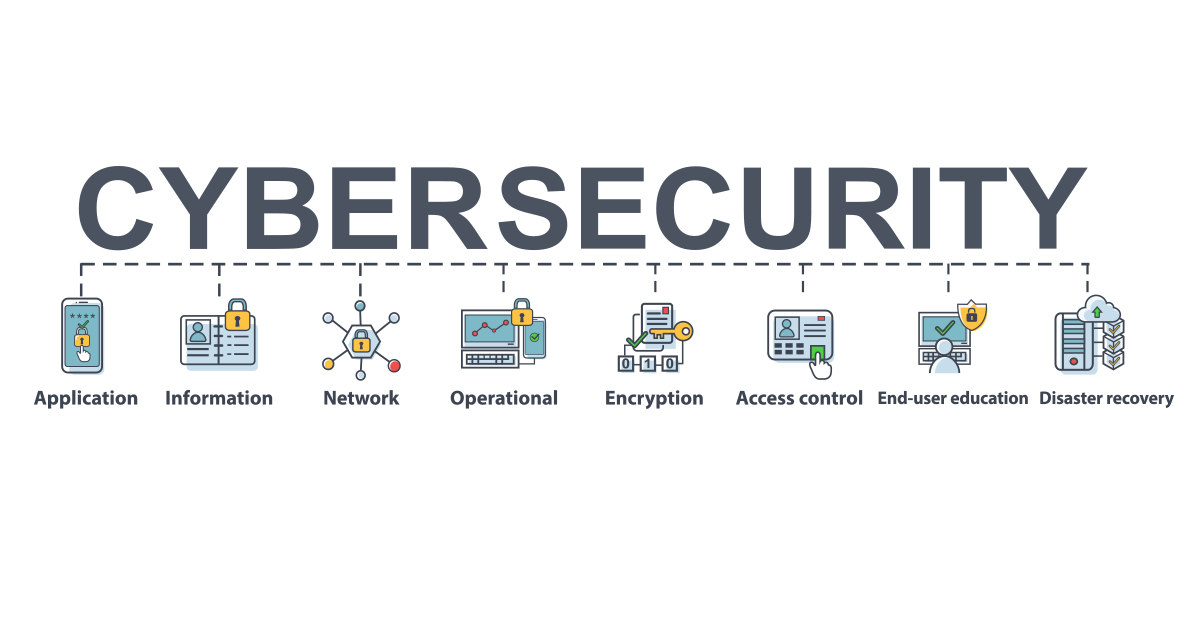5 Easy Facts About cybersecurity online degree Described
5 Easy Facts About cybersecurity online degree Described
Blog Article

1. Data breaches: Fintech firms take care of sensitive economic info, making them a prime target for cybercriminals. A solitary data violation can jeopardize numerous individuals' individual and economic information, causing extreme effects.
2. Repayment scams: Defrauders make use of advanced methods to control payment systems, creating economic losses for both consumers and companies. Stopping payment scams requires innovative security measures and consistent surveillance.
3. Conformity: Fintech business must follow numerous monetary policies, such as GDPR, PCI-DSS, and AML/KYC. Making certain conformity can be a complicated and lengthy procedure, but failing to do so can lead to large fines and reputational damages.
4. Inadequate safety and security steps: Fintech business often focus on speed and development over security, bring about insufficient protection against cyber dangers. This can subject individuals' data and economic info to significant dangers.
Fintech software growth need to deal with these cybersecurity tests to protect customers' rate of interests and maintain public trust. }
The fintech sector is reinventing the means we handle cash, but with advancement comes new obstacles, particularly in cybersecurity. Such difficulties question the honesty and safety of economic systems and impact your image as a reliable fintech copyright https://s-pro.io/fintech.
In this post, we're checking out the 4 cybersecurity risks dealt with by the fintech industry and suggest strategies on exactly how to reduce them.
"Cybersecurity Threats Evolve"
A malware strike describes any type of harmful software program planned to harm a customer's computer or web server. These harmful programs are developed and dispersed by cybercriminals for different motives, with the common objective of taking personal, economic, or organization data.
Ransomware, a type of harmful software program, remains to be the most report from Statista exposed that in 2023, 72% of services experienced a ransomware strike. Wondering just how to remain risk-free? Right here are a few advised defense strategies.
See to it to on a regular basis upgrade your computer system and software program, use a trusted antivirus program, and stay clear of clicking links from unfamiliar sources.
On the one hand, the fast adoption of emerging technologies such as blockchain, artificial intelligence (AI), and IoT ( Net of Points) opens up new horizons to fintech. On the other hand, it brings new safety and security issues to the table. For example, AI-powered systems can be used to detect vulnerabilities in networks and systems. IoT strikes target Web of Things systems-- objects installed with software application that enables them to collect and save data. While the risk of IoT strikes can be decreased by picking safe gadgets, AI-powered strikes require a more intricate method:
Apply a multi-faceted safety and security approach;
Offer routine training for workers on safety ideal techniques;
Use innovative AI-powered safety remedies to boost protection against insider risks.
A fintech organization's biggest hazard can originate from within. Workers or professionals with certified access to sensitive information or systems can pose a significant risk, referred to as insider threats. These threats can be intentional, where sensitive details is swiped and sold deliberately, or unintentional, where private information is mistakenly subjected, causing injury to the company. Reliable approaches to alleviate insider dangers include carrying out robust gain access to controls, keeping an eye on customer actions, giving normal cybersecurity degree training and recognition programs, and carrying out event response plans to address possible safety and security violations.
audit of your team's accessibility benefits;
implementation of password protection plans;
education of your team on exactly how not to become the sufferers of phishing.
Third-Party Vendors
Lots of fintech companies count on third-party carriers for services like settlement handling or information storage. Such dependence on outside suppliers in fintech software program growth can present several opportunities for cyberattacks. Fintech companies have to perform comprehensive due persistance on third-party vendors they cooperate with, consisting of history checks and safety and security analyses, to ensure they have tight protection steps in position.
In conclusion, while the fintech industry is acquiring worldwide adoption, cyberpunks never ever sleep, making cybersecurity a leading obstacle in fintech software development.
S-PRO, a forward-thinking software application development company, prioritizes the assimilation of advanced security options in its fintech projects to guard the rate of interests of both its customers and end-users, supplying them with top-notch protection against cyber assaults. Report this page